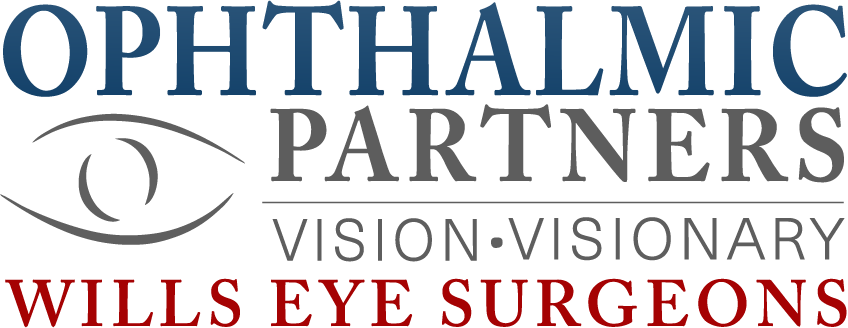Routine Eye Care
Ophthalmic Partners is pleased to provide the very best in routine eye care for patients in Philadelphia, Pennsylvania and the surrounding communities.
Protecting the health of your eyes is extremely important and needs to begin at an early age. Vision impairment or vision loss can have a devastating impact on one’s lifestyle and can negatively affect normal child development. At an older age, diminished vision can hamper mobility, impair physical and financial independence and have profound psychological and emotional consequences on an individual’s quality of life.
Vision loss is increasing and becoming a significant public health problem in the U.S., ranking among the top ten causes of disability. In many cases, however, early detection and treatment and good routine eye care can prevent or limit the progress of vision impairment and blindness among residents of Pennsylvania and New Jersey.
HOW CAN ROUTINE EYE CARE KEEP MY EYES HEALTHY?
You can ensure good eye health and avoid vision loss as you age in a number of ways:
- Eat a healthy diet that is rich in nutrients and vitamins known to promote eye health and good eyesight.
- Maintain a healthy weight to reduce risk factors.
- Quit smoking. Tobacco smoke has been linked to an increased risk of several eye conditions leading to blindness.
- Wear protective eyewear. Many workplace activities, sports, or home activities can increase your risk of eye injury.
- Know your family history, since many eye conditions are hereditary. Premature birth, exposure to infection in utero, and certain genetic conditions can also increase the risk of developing vision problems.
- Start having a routine eye exam at an early age. Vision is linked closely with learning, and children with vision problems often have trouble in school. They don’t know what constitutes normal vision and may not be able to explain the problem. If your child is having difficulties, a routine eye exam can help ensure normal vision development and academic progress. Adults who use corrective lenses should also have regular eye tests to keep prescriptions current and monitor for eye disease.
- Have a comprehensive dilated eye exam. A comprehensive exam will test all aspects of your vision, identify risk factors for developing an eye disease, or diagnose the presence of an eye condition. Eye doctors are often the first to detect the presence of diseases such as high cholesterol, diabetes, or hypertension through a comprehensive eye exam.
WHAT DOES AN EYE EXAM ENTAIL?
An eye exam will explore the patient’s history, including a family history of eye disease, medications used, and environmental or occupational hazards that may impact vision. A vision acuity test is performed to determine how clearly you can see at a distance of 20 feet, measured against the normal acuity of 20/20. Tests are taken to measure depth perception, color vision, the strength of eye muscles, pupil response to light, and peripheral vision. Refraction is done to measure whether your eyes need corrective lenses to improve nearsightedness, farsightedness, or astigmatism. Other tests measure eye shape and determine whether the eyes are focusing and moving properly.
Finally, an eye health evaluation will assess the complete eye, looking for evidence of any disease. In a comprehensive dilated eye exam, the eye doctor dilates the pupil so that the back of the eye can be thoroughly examined. A pressure test is also done to determine glaucoma risk.
AT WHAT AGE SHOULD AN EYE EXAM BE PERFORMED?
If you’ve never had a routine eye exam, it’s important to do a benchmark comprehensive exam by about age 40, followed by regular exams every few years. If you wear corrective lenses, comprehensive eye exams are recommended more often. Children should have routine vision testing by the time they reach school age, particularly if they are experiencing learning difficulties or show evidence of vision impairment. Children at risk for visual impairment should be tested as early as six months of age.
Schedule an Appointment
Get Started
Early detection of eye disease is the best defense against vision loss, particularly for individuals over the age of 40. Should you experience any vision problems that could be an indicator of an eye disorder, contact one of our offices in Philadelphia, PA, Bala Cynwyd, PA, Media, PA, or Marlton, NJ, as soon as possible to book an assessment.
The eye doctors and surgeons at Ophthalmic Partners have the necessary expertise and experience to diagnose, manage, and treat complex eye disorders and diseases. Visit us today to keep your eyes healthy and your vision clear.

Pennsylvania:
(484) 434-2700
New Jersey:
(856) 596-1601